Welcoming Ramadan in Bosnia and Herzegovina
Preparing for Ramadan starts a while before the month begins, as Muslims go about cleaning the mosques which volunteers and young people fill and decorate.
When the start of Ramadan is confirmed by the state, different forms of celebrations start in Bosnia, and you can see lanterns and lights everywhere.
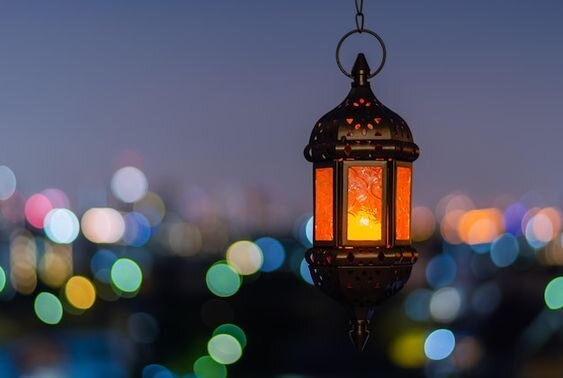
Ramadan is considered a chance in Bosnia to spread the sense of takaful (sponsorship) and pay the debts of the indebted as well as collect donations for the needy.
In Bosnia, Ma’edet Al Rahman (Mercy Table) brings together people of all religions, and families, relatives, and neighbors are all invited.
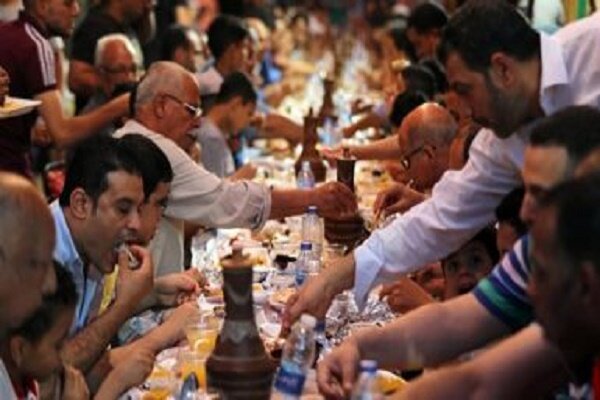
In Ramadan in Bosnia and Herzegovina, the markets get crowded as the period between noon and afternoon witnesses great demand by fasting individuals who purchase their vegetables, meat, and legume needs to prepare iftar before Azan Al Maghrib (sunset call to prayer).
Politicians and public figures in Ramadan in Bosnia pray Taraweeh (special Ramadan prayers) around the country without tight security.
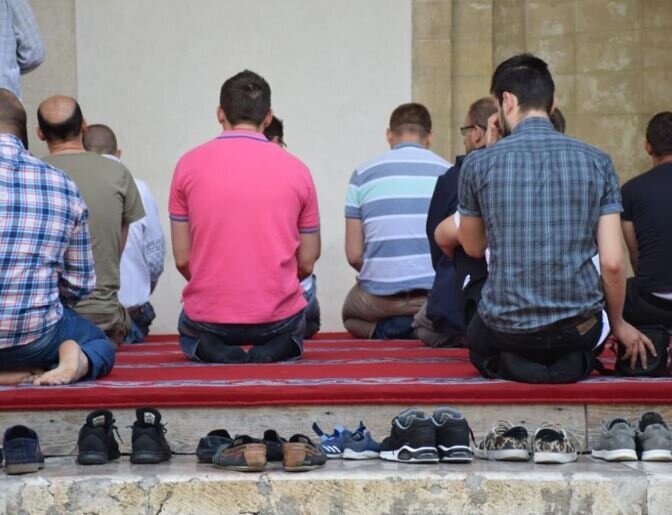
Special Ramadan food in Bosnia and Herzegovina
Ramadan in Sarajevo is distinguished by a kind of pastry called “Somun”. Its distinctive smell and taste spread are noticeable in Ramadan, so the people of Sarajevo believe that the smell of Somon is the real smell of Ramadan, and that is why you can easily see long queues in front of bakeries during Ramadan.
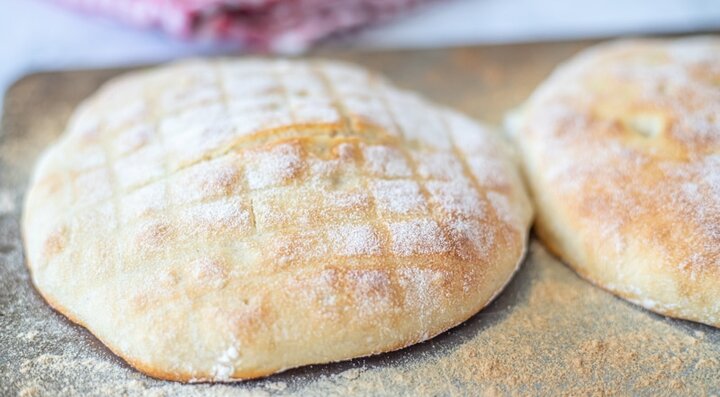
A traditional iftar meal here would not be complete without somun or lepinja a type of Balkan flatbread. In Sarajevo, it is traditional for it to be accompanied by a soup-like dish made from kaymak (clotted cream), cheese, and eggs, known as Topa.
Also, specific kinds of bread are baked during Ramadan as a way of honoring the month. Some of the most famous foods on iftar tables in Bosnia include pita bread, cabbage, stuffed turkey, salads, kabab, pies stuffed with meat or potatoes, cheese, and spinach.
One of the main things that distinguish Bosnians is their strong connection to coffee. Coffee is a national drink and all families have manual copper devices to crush and brew coffee.
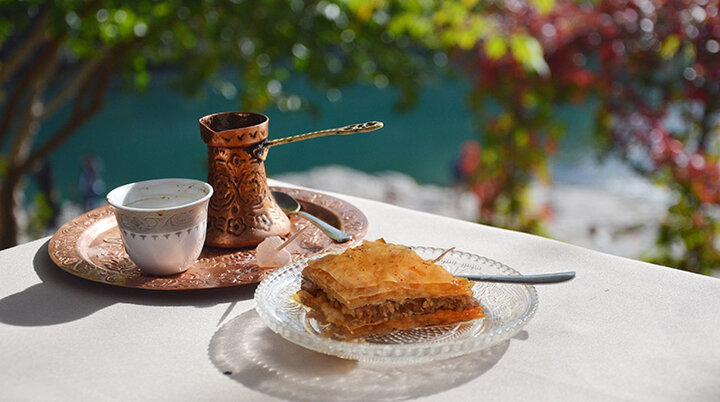
The meal finishes with sweet desserts such as tulumba, which are mini syrupy churros, dipped in lemon syrup known as agda or date-shaped biscuits (Bosanske hurmašice) soaked in the same syrup. The meal ends with traditional Bosnian coffee, served thick and strong with a sugar cube served on the side, to chew as you sip your coffee.
Ramadan traditions in Bosnia and Herzegovina
Ramadan is a month of special devotion, prayer, forgiving, spiritual cleansing, and ascension, of intensive interpersonal meetings, and Muslims in Bosnia and Herzegovina, in addition to fasting and praying the Tarawih prayer, also read Quran, listen to the readings of the Quran along with studying and understanding Quran, and organize joint iftars and suhurs (preparation for the fast).
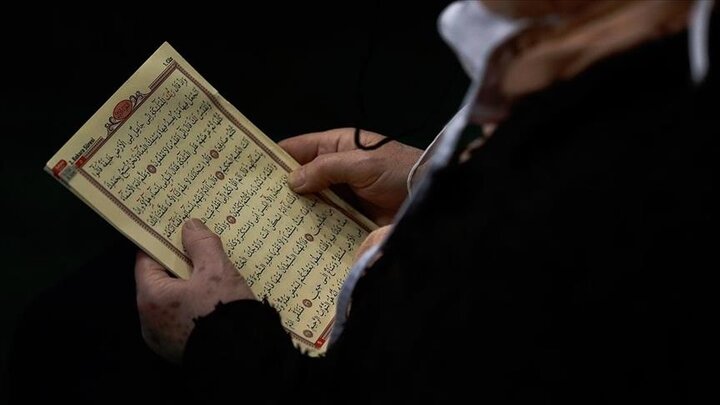
In the capital, Sarajevo, a Ramadan Festival is organized to offer many cultural, social, and religious activities such as group iftar, shows, and classes in mosques. The festival starts on the first day of Ramadan at the Yellow Fortress. The activities continue in various historic buildings in the city.
On the Yellow Fortress, a cannon is traditionally fired every Ramadan, which marks the end of fasting. From year to year, citizens gather here who want to spend iftar in the open air and enjoy, in addition to the view of the city, the sound of the call to prayer, which in Aksham also means the time of breaking the fast.
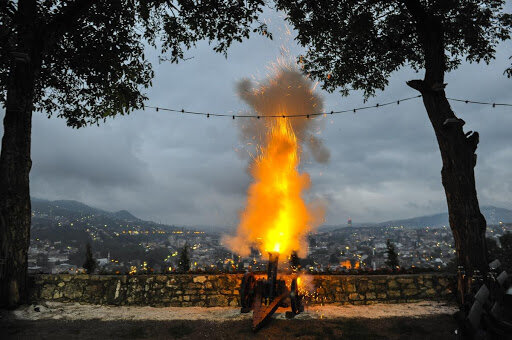
The firing of cannons from hills above cities in the month of piety, contrition, and strengthening of interpersonal relationships is a centuries-old tradition of Bosnian Muslims.
On every Ramadan night, fire from the cannon in the old Sarajevo settlement of Vratnik marks the time of iftar – the end of the all-day-long fasting of Muslims.
Eid al-Fitr in Bosnia and Herzegovina
Eid al-Fitr or the Festival of Sweets is the earlier of the two official holidays celebrated within Islam. The religious holiday is celebrated by Muslims worldwide because it marks the end of the month-long dawn-to-sunset fasting of Ramadan.
The people of Bosnia get excited about the Eid (feast) following Ramadan and congratulate one another. Their main traditions before Eid are decorating homes, spraying nice-smelling air fresheners, and wearing new clothes. Usually, the first day of Eid is devoted to family and cemetery visits. Bosnians also have the habit of giving young children money during Eid.
Compiled by Mohaddeseh Pakravan


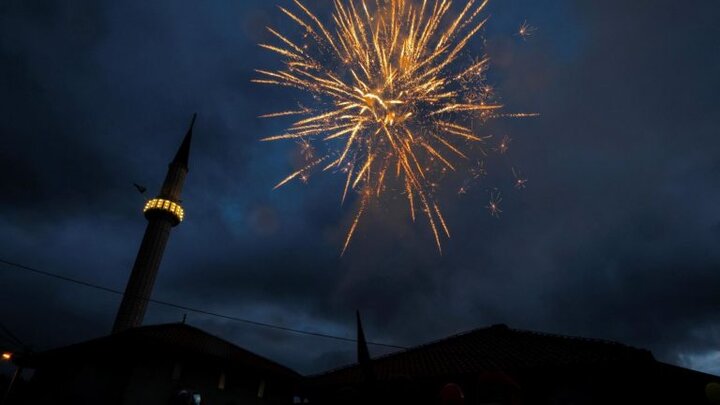





















Your Comment